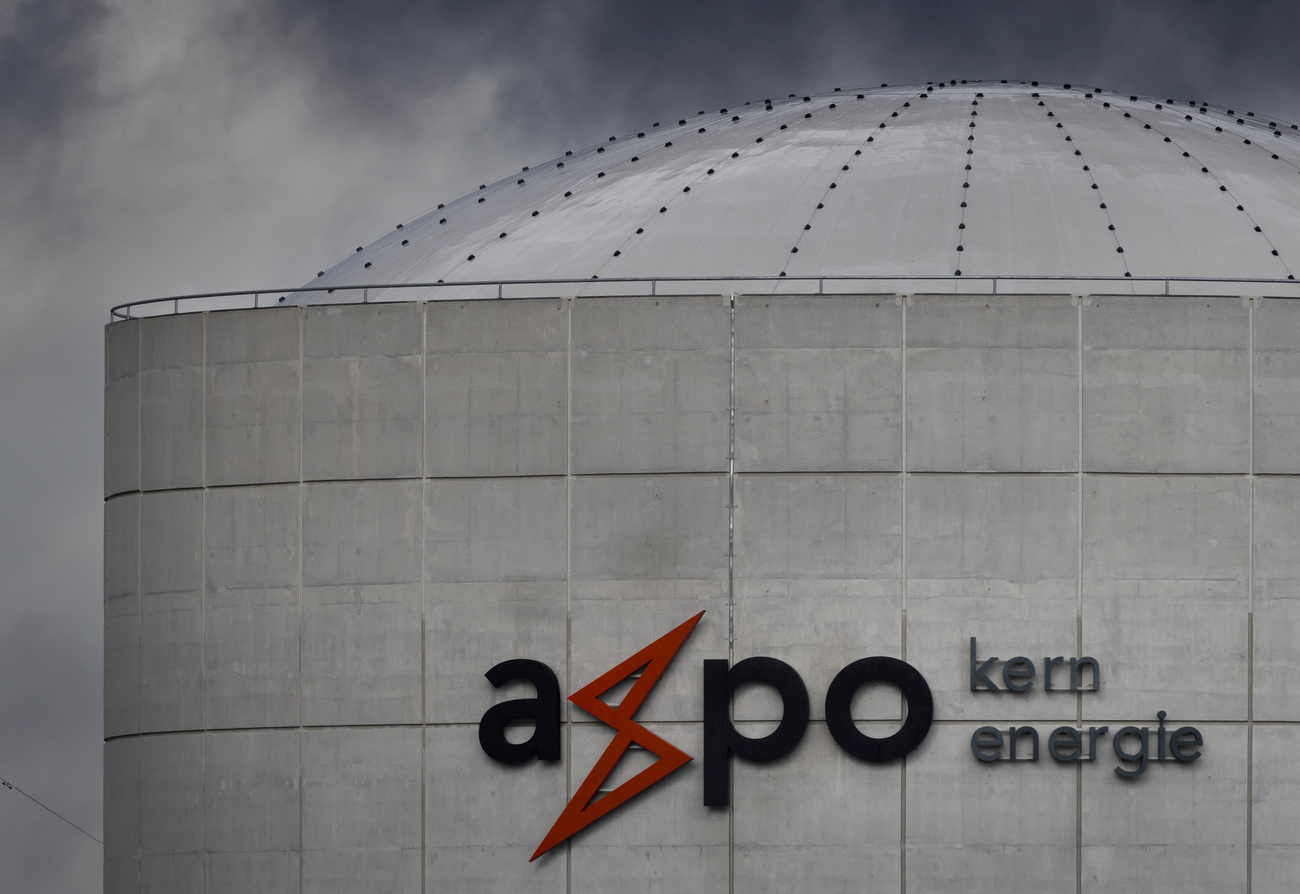
Study to assess if Swiss nuclear reactors could operate beyond 2030

Energy company Axpo is reviewing the operational feasibility of the Beznau plant, which houses the two oldest Swiss nuclear reactors, beyond the year 2030.
According to Axpo, the investigations are focussed on technical feasibility, with safety the non-negotiable top priority.
Whether operation beyond the previously envisaged 60 years is possible in principle depends on several factors, the company said on Friday, with the reactors being examined as part of a feasibility analysis.
According to Axpo, these factors include the integrity of central components such as reactor pressure vessels and the availability of personnel, suppliers and fuel. The necessary and comprehensive evaluations have begun and are expected to take around a year as part of the analysis.
+ In Switzerland and beyond, is nuclear power set for a revival?
Axpo said it had invested more than CHF2.5 billion ($2.8 billion) in retrofitting and modernising the two reactors, located on a small island in the River Aare in Döttingen, canton Aargau, since they were commissioned. The energy company is also clarifying how large the investment in safety would be for operations over a period of 60 years.
The Beznau I reactor block was connected to the grid in 1969, followed by reactor unit II in 1971. The two reactors produce around six terawatt hours (TWh) of electricity, which corresponds to the consumption needs of 1.3 million four-person households.
Regulator sees room for improvement
There are no lifetime limits for nuclear power plants in Switzerland and they may be operated for as long as they are deemed safe by the regulatory authority, the Swiss Federal Nuclear Safety Inspectorate (ENSI). At the end of 2011, ENSI stated in a report that there was “potential for improvement” regarding the long-term operation of the Beznau plant.
+ In 2017, voters approved a long-term phase-out of nuclear
ENSI considered long-term operation of up to 60 years to be possible, although it stated that, in some areas, the original plant design of Beznau was no longer state of the art.
However, ENSI also said in its 400-page periodic safety review (PSR 2017) that the plant was at a very good safety level, as various retrofits had been carried out, some of which were extensive.
Energy foundation sees shortcomings
The Swiss Energy Foundation (SES) has criticised Axpo’s plans as “unnecessary and dangerous for Switzerland” and said the idea of allowing Swiss nuclear power plants to run forever was unnecessary. The “lack of transparency and safety shortcomings at the Beznau nuclear power plant” have been known for years, the SES said in a press release.
The organisation added that the plant had aged and was far removed from the safety standards of new nuclear power plants, with a decentralised energy supply safer than the cluster risk of centralised, old reactors that obtain their fuel from Russia.
Adapted from German by DeepL/kp
This news story has been written and carefully fact-checked by an external editorial team. At SWI swissinfo.ch we select the most relevant news for an international audience and use automatic translation tools such as DeepL to translate it into English. Providing you with automatically translated news gives us the time to write more in-depth articles.
If you want to know more about how we work, have a look here, and if you have feedback on this news story please write to english@swissinfo.ch.

In compliance with the JTI standards
More: SWI swissinfo.ch certified by the Journalism Trust Initiative






























You can find an overview of ongoing debates with our journalists here . Please join us!
If you want to start a conversation about a topic raised in this article or want to report factual errors, email us at english@swissinfo.ch.